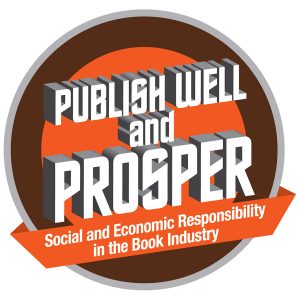Book Summit 2017 took place in downtown Toronto on June 15. Publishing professionals from across the industry gathered for keynotes and breakout sessions on topics that ran the spectrum from the publishing business model — a public service or private good? — to ethics in social media, to publishing with an awareness of our responsibility to the planet.
We heard one attendee in particular was quite inspired after hearing the panel on issues facing Indigenous authors and actions that need to be taken following the Truth and Reconciliation Commission of Canada (TRC). We asked her if she would share her notes and thoughts about it with us. She agreed so let's turn it over to Elizabeth Barker of eBOUND Canada.
Panel: Indigenous Writers and Publishing Post TRC
Panelists: Kateri Akiwenzie-Damm, Louise Bernice Halfe, Paul Seesequasis
Moderator: Cherie Dimaline
It was a simple setup: a small, open room where the divide between panelist and moderator was slight. The audience, recently fed and slightly sedated, exceeded the provided seating before opening remarks. But it didn’t matter, more chairs were procured without disruption. All and all, it was a familiar setting and one that probably doesn’t need three sentences to describe it.
The speakers — a poet, two authors, and a publisher and writer sporting a pair of Golden Girl sneakers (they were more magnificent than you can even imagine) — waited to take their positions until each of their introductions was read out.
Cherie, who shared a few insights of her own while also moderating, was able to raise a myriad of discussion topics in a relatively short amount of time. What emerged was a flowing discourse ranging from “respecting the written word” to unwitting systemic exclusion.
But the overall tone of the conversation was one of general fatigue: This had all been said. We’d been in this room before. Many times.
Kateri shared that 30 years ago her cousin Lenore Keeshig wrote a piece for The Globe and Mail speaking out against appropriation (yep, that came up). Last month, Kateri herself wrote an opinion piece on the same topic for The Globe and Mail. They wrote about the exact same thing 30 years apart. She feared that 30 years from now a younger cousin would also be caught up in this cyclical conversation.
The entire panel agreed: what is needed now is action. There are many things publishers can do immediately. All three panelists stressed that publishers should not shy away from working with and editing the work of Indigenous writers, but rather that they should “do the research” to go out and build relationships with numerous members of the communities involved. Paul, who spoke from the standpoint of being a non-fiction writer, concurred with Kateri that being an Indigenous author often meant being a representative for an entire culture, and that constantly being in the role of educator “kind of sucks." Consulting more than one person for any given project became a running theme. Consulting the correct community, another. Publishers should “engage,” the panelists frequently reiterated. And to engage is to actively listen.
With little time left, Louise, who had first spoken in Cree (which, she told us with a bit of a smile, she always does “just to remind everyone who was here first”), summarized by saying that guidance and resources are available if those initial outreach steps are taken and added: “We learned to walk in your world and no one held our hand. I expect you to do the same when you come to us.”



